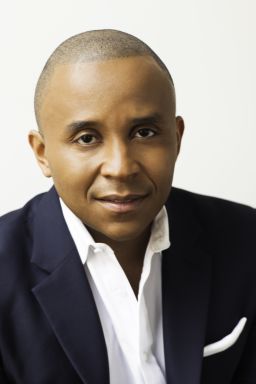Editor’s Note: John Legend is a singer, songwriter, actor and activist. Rashad Robinson is executive director of Color Of Change, America’s largest online racial justice organization. The views expressed in this commentary are solely those of the authors. For more on the United States’ complex prison system, watch the CNN Film “American Jail” Sunday, July 1 at 8 p.m. ET.
No one should have to stay in jail because they lack the money to buy their freedom. Yet every night, according to the Justice Department’s statistics, nearly 450,000 people who have not been convicted of a crime sit in jail, a large number trapped there simply because they don’t have enough money to post bail.


For many, even a relatively modest bail amount is out of reach. Moreover, research shows that on average, black people are assigned higher bail amounts than other defendants arrested for the same offenses. Simply put, it is wrong to be forced by poverty to face an extensive stay in jail while awaiting a court date – separated from children, family and home, and running the risk of losing employment.
If you believe TV crime shows, you might think that commercial money bail emerged as a solution to a problem of justice: a service that reasonably aided people in paying bail — the deposit that defendants leave with the court as collateral for their promise to appear at trial. The actual history: the first commercial bail bond business started in 1898 in San Francisco and functioned as a corrupt payoff racket among crime bosses, judges, lawyers and police.
This history is consistent with the reality of money bail today. If you are wealthy, you can post the bail amount and walk free, whether or not you pose a threat to society. But if you don’t have the money, regardless of how small the alleged crime, giving in to the commercial money bail industry may be your only option to avoid a months-long wait behind bars.
Recently, momentum to reform the unjust bail system has gained steam. In January 2018, a California appellate court declared that no one can be jailed because they’re too poor to pay their way to freedom. It also places stringent requirements on judges to demonstrate why someone should be held in jail rather than remain home with their family as they defend their case.
Even district attorneys, who have historically been some of the biggest advocates for money bail, have been stepping up. Brooklyn DA Eric Gonzalez, Manhattan DA Cy Vance, Chicago’s State’s Attorney Kim Foxx and Philadelphia’s newly-elected DA Larry Krasner have all eliminated money bail for certain low-level offenses to end the system’s reliance on unnecessary and harmful pretrial detention.
However, these successes don’t fully mitigate the destruction caused by the commercial bail bond industry – how it preys upon low-income communities and people of color, among many others – or address the urgent need to dismantle it entirely.
The for-profit commercial bail bonds industry is built on predatory business practices. With bail bond agents working as proxies for large insurance corporations, they exploit poor communities, particularly black communities.
In exchange for a nonrefundable fee from defendants, a bail bond agent will secure a person’s release from jail, often without having to deposit any money with the court themselves. When families cannot pay bond agents in cash, they may be forced to put up their car or home as collateral, which they can easily lose entirely if they do not make each and every payment installment.
With the potential threat of physical harm in jail looming, as well as the consequences of not returning to their lives, people often sign contracts filled with egregious terms that put their entire family at risk. These can include unannounced, armed home searches, vehicle tracking, body monitoring and phone surveillance — all conducted by private, poorly regulated bail bond agents. Unbelievably, even when the charges are dropped, the case is dismissed or a defendant is found innocent by the court, families remain on the hook to pay the full amount of exorbitant fees demanded by these agents.
The commercial bail industry generates nearly $2 billion each year. Last year, in New York City alone, there were 12,000 bonds secured through commercial bail bond companies for an aggregate amount of $280 million. Premiums, fees and illegally retained collateral from these products may have exceeded $25 million – nearly all of it coming from low-income communities of color who are hit hardest by mass incarceration, the war on drugs, and other public policies that disproportionately target them. Many, including the New York City Comptroller, have called for an eradication of the industry.
Dismantling the commercial bail industry is a steep hill to climb. In recent negotiations over bail reform in New York State, for example, the aggressive influence of the bail bond industry won the lobbying contest, while justice for our communities lost out.
But the fight is not over and there is hope. New York Governor Andrew Cuomo can make good on his own professed vision for reform by supporting new and improved bail reform legislation during the regular session this year. With so much happening in the shadows, Cuomo and other elected officials should push for follow-up investigation to an initial report from Color Of Change exposing the true ills of the commercial bail industry.
Cuomo recently sent a tweet announcing an investigation in response to a campaign by Color Of Change and our partners. But he needs to move quickly to implement it, as New Yorkers are still subject to the abuses of the bail industry.
Prosecutors, mayors, legislators and governors across the country are responding to the community-led movement for bail reform and reconsidering the role of money bail in our justice system. We must all add our voices to the call to #EndMoneyBail if we are going to finally put an end to the corrupt, destructive, and unnecessary industry that is commercial bail.


